
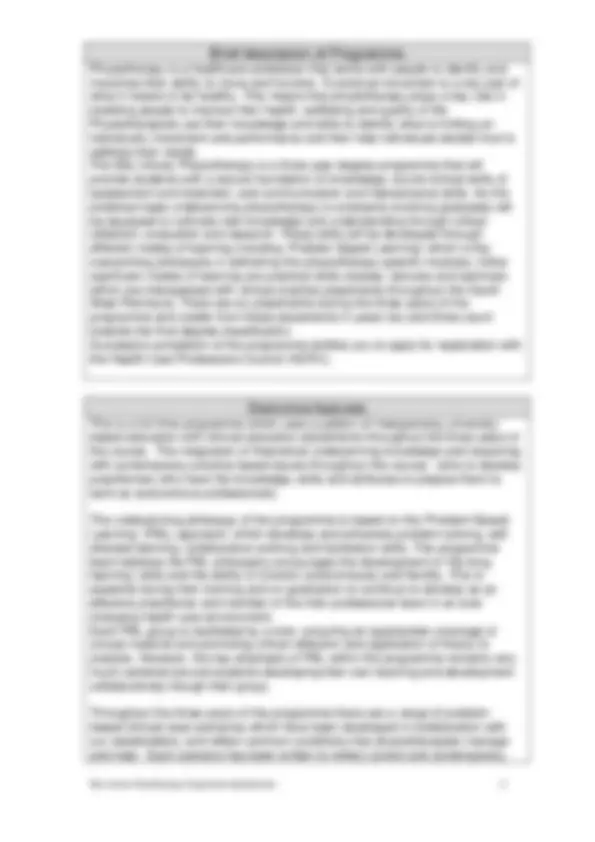
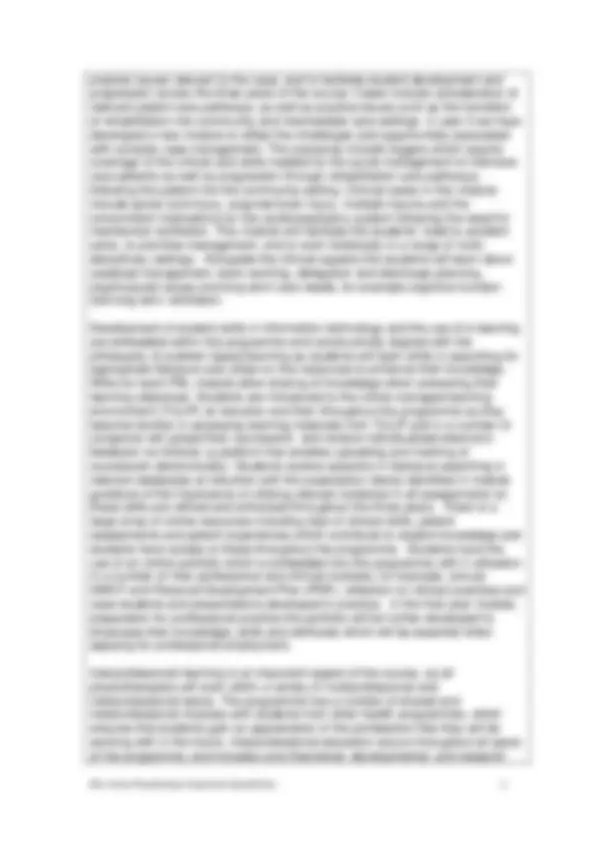
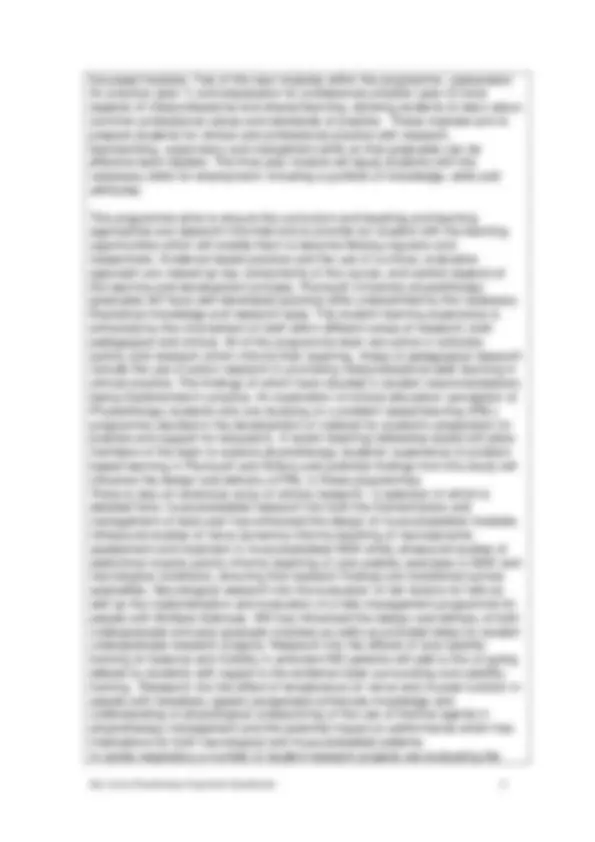
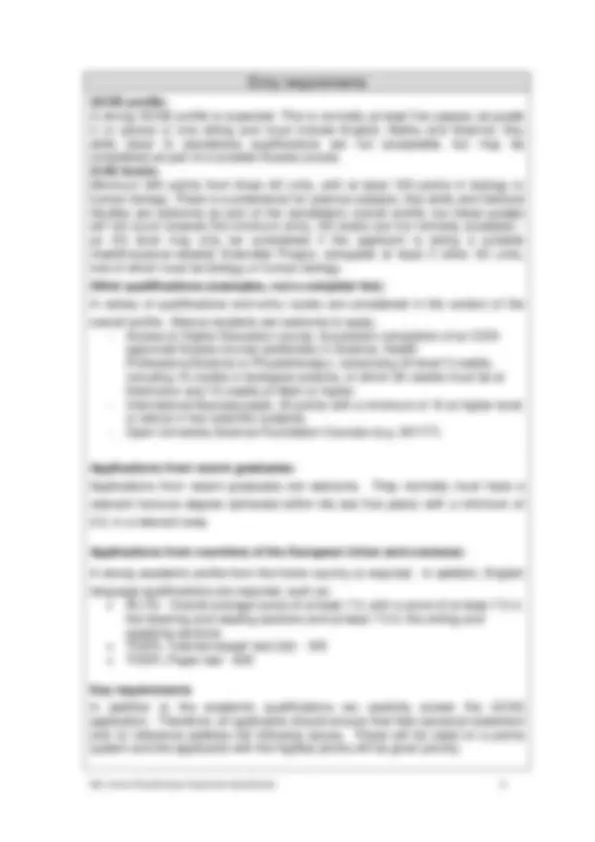
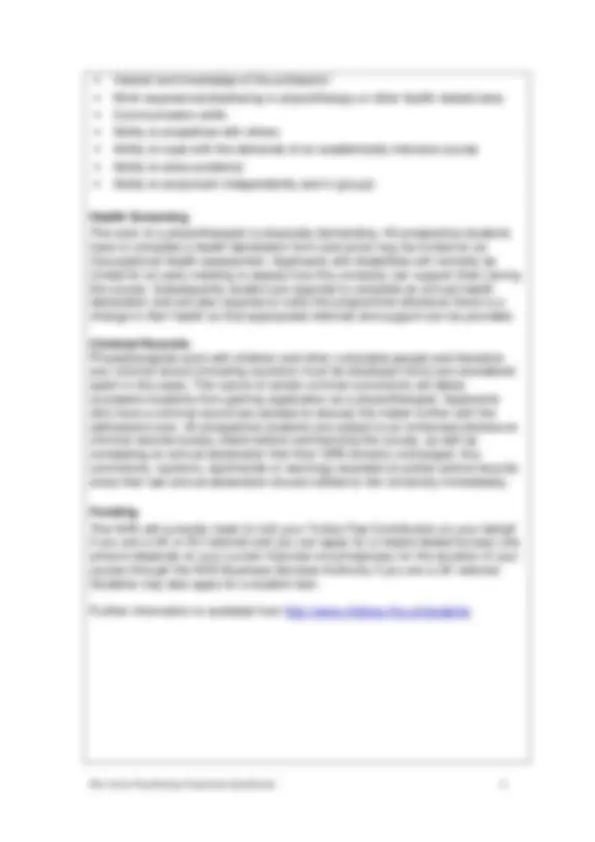
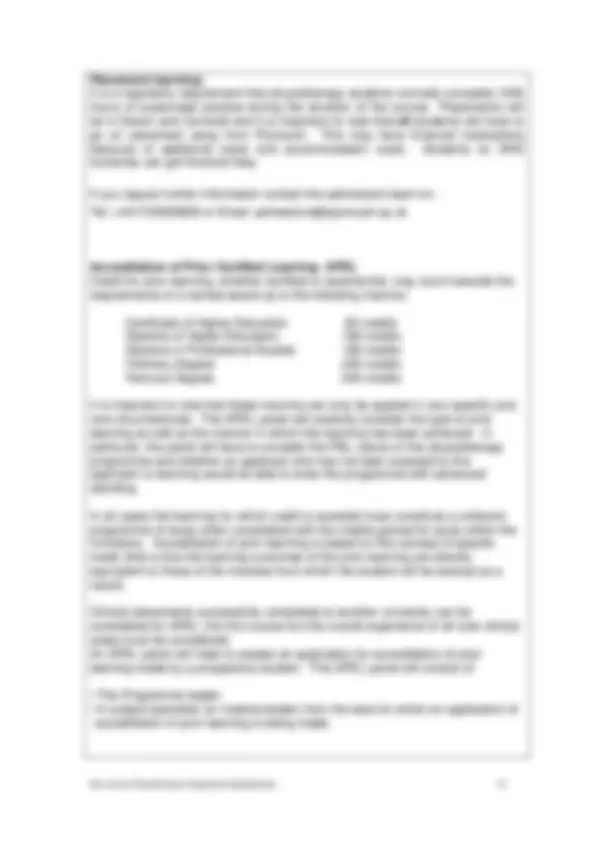
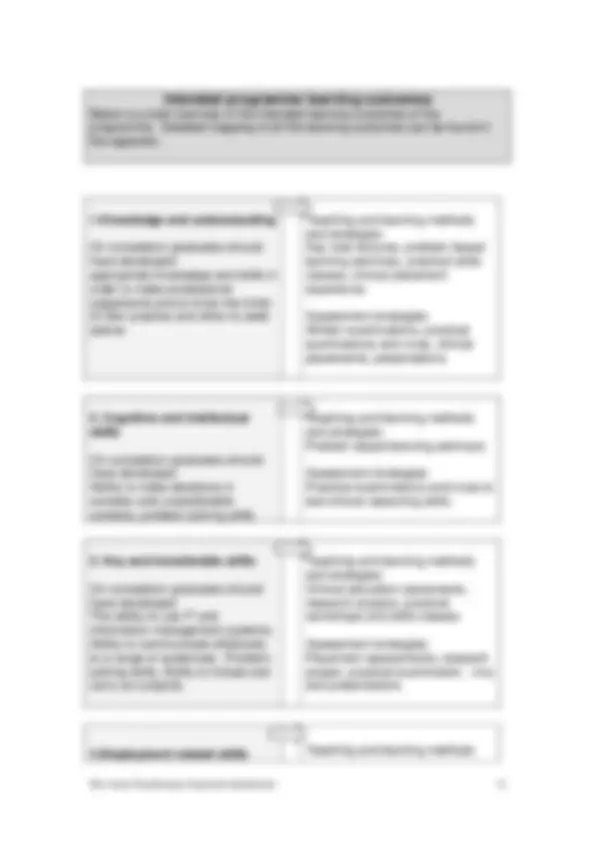
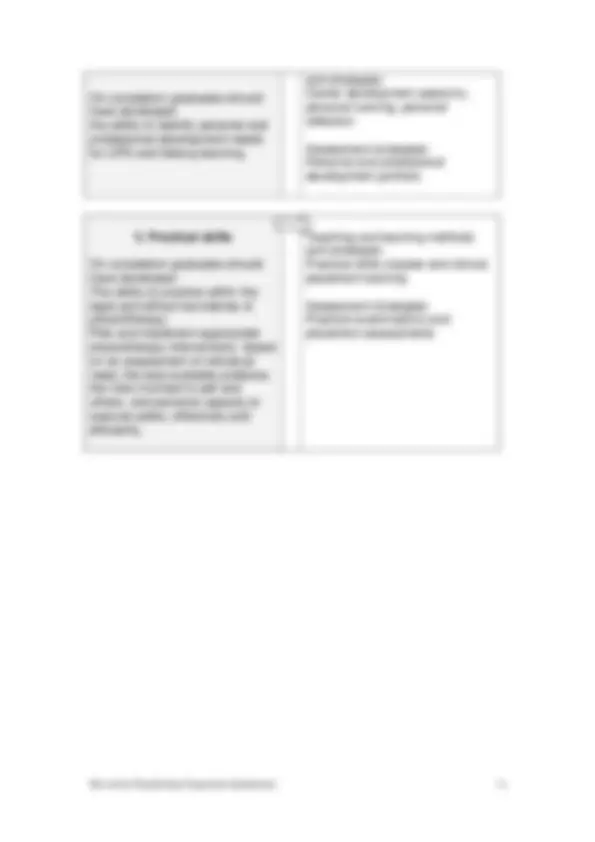
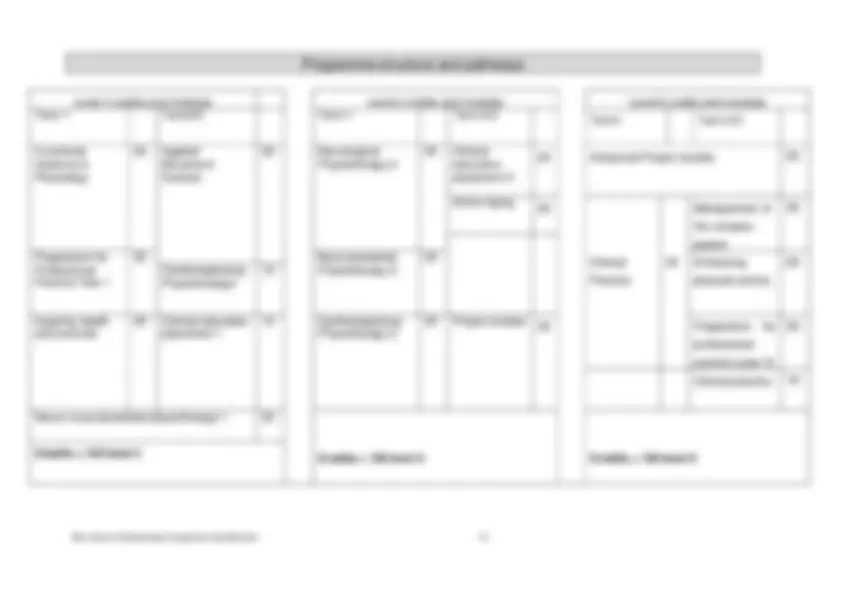


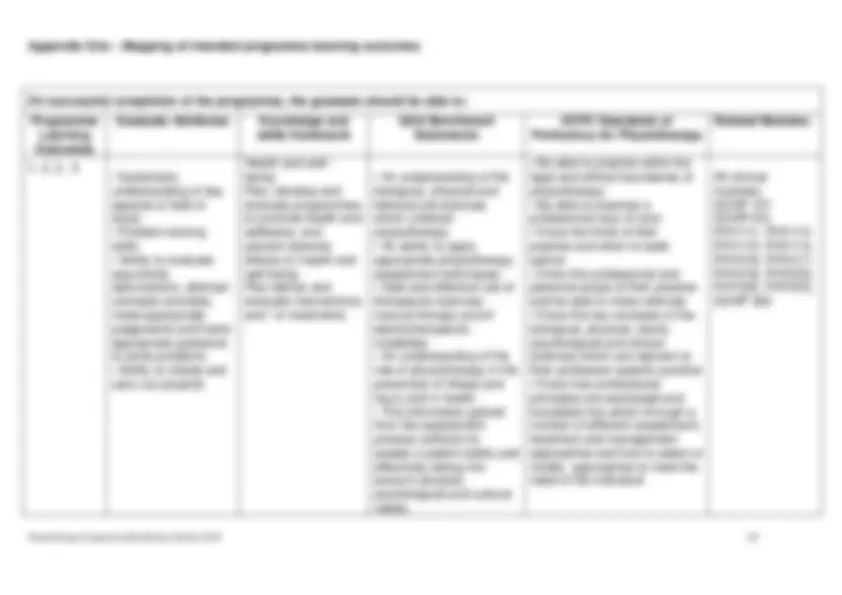
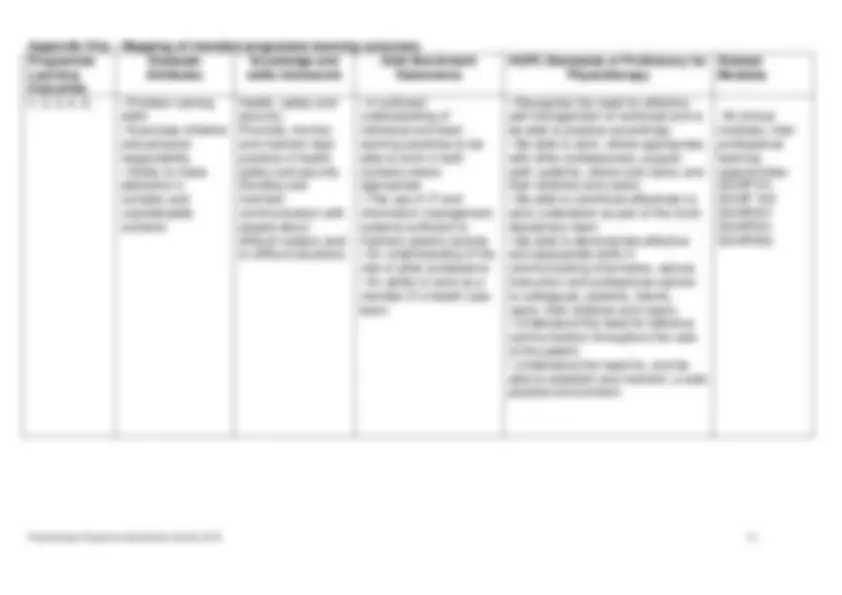
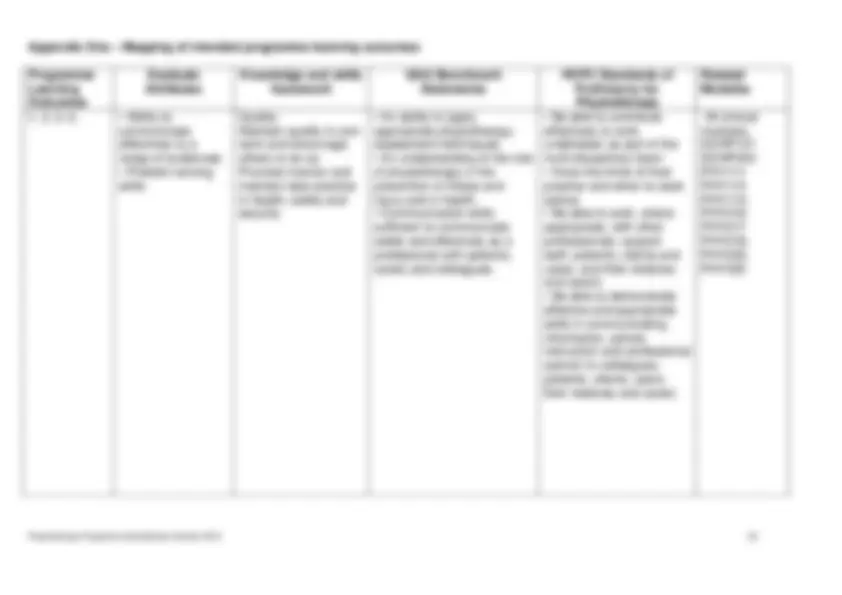
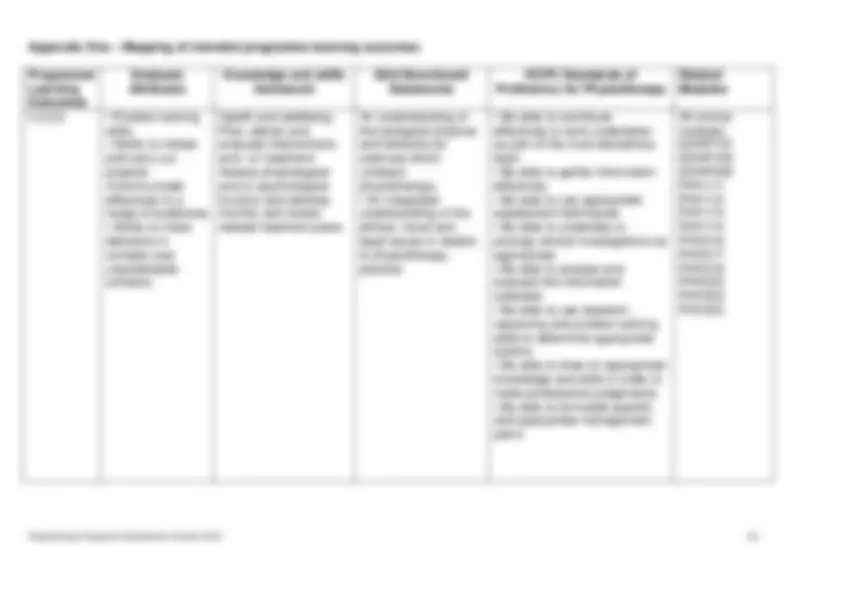
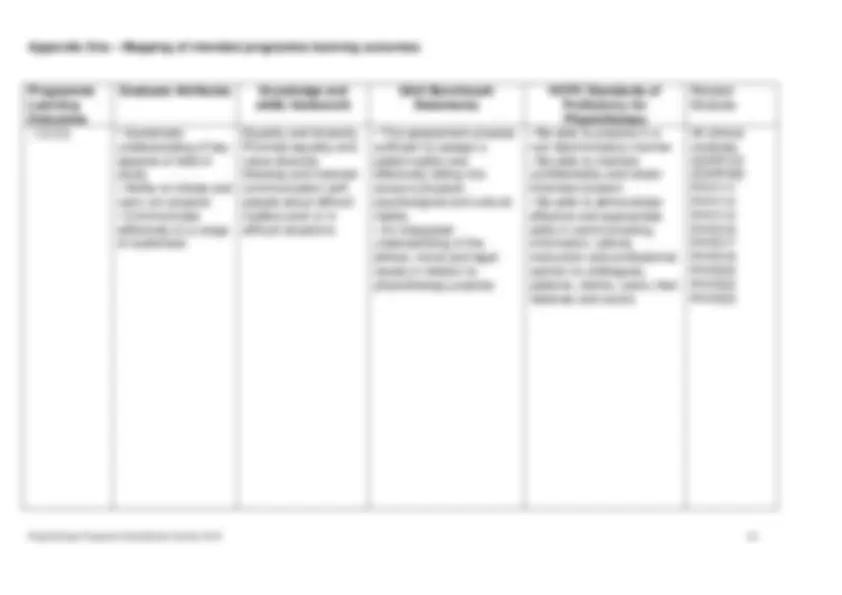
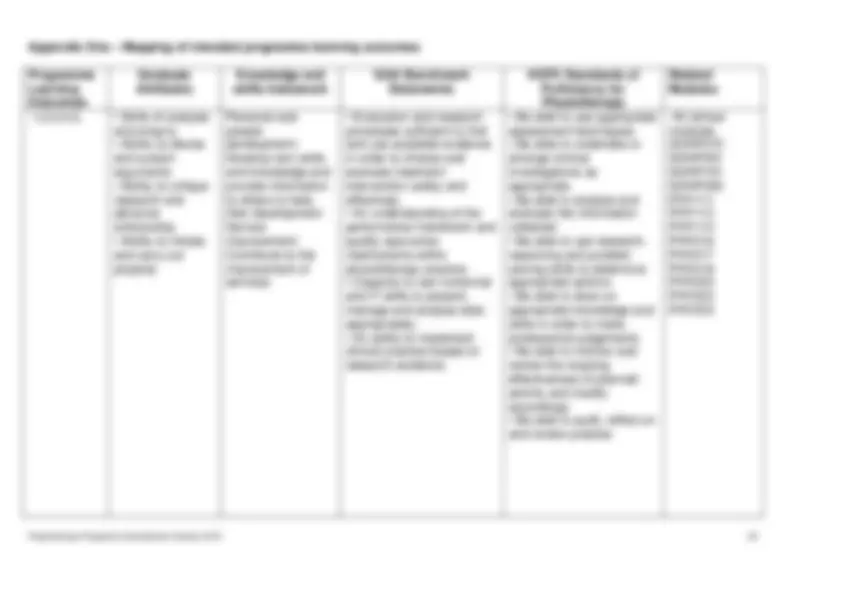
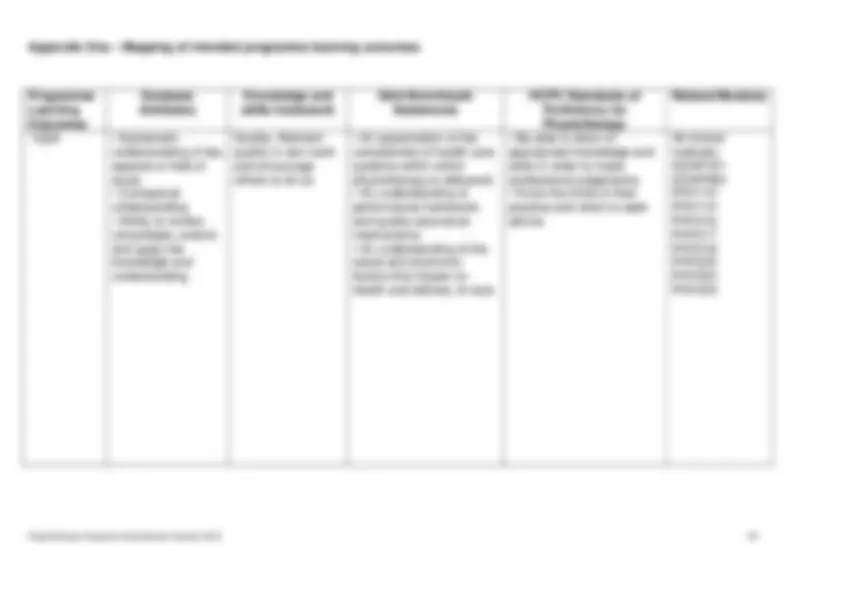
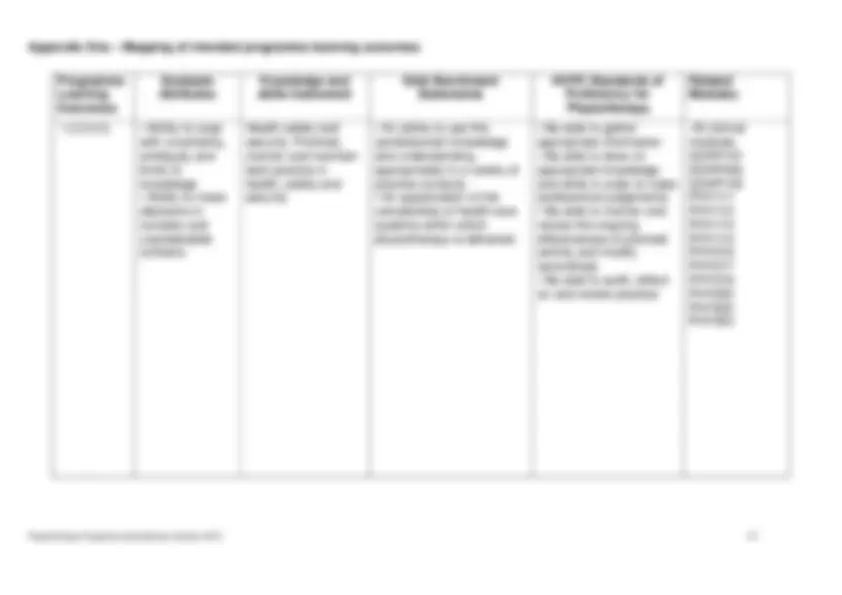
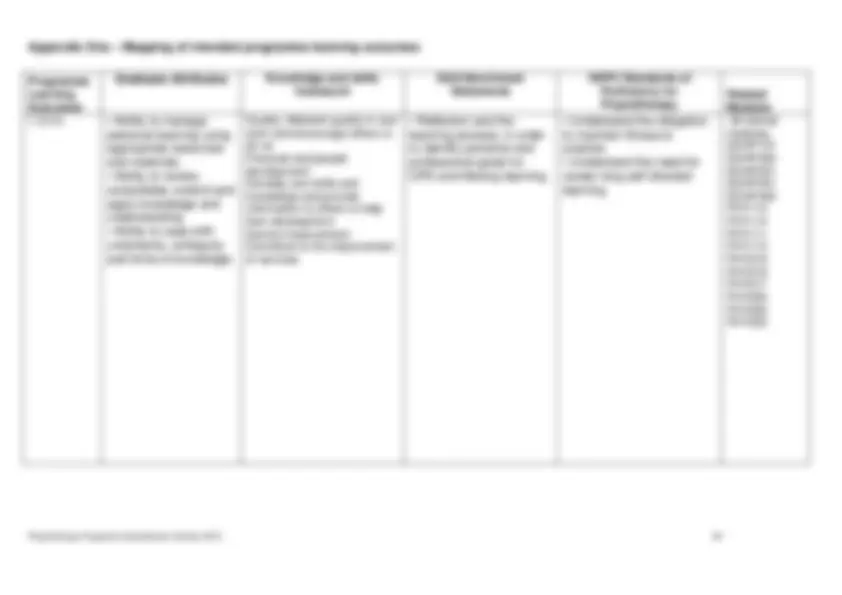
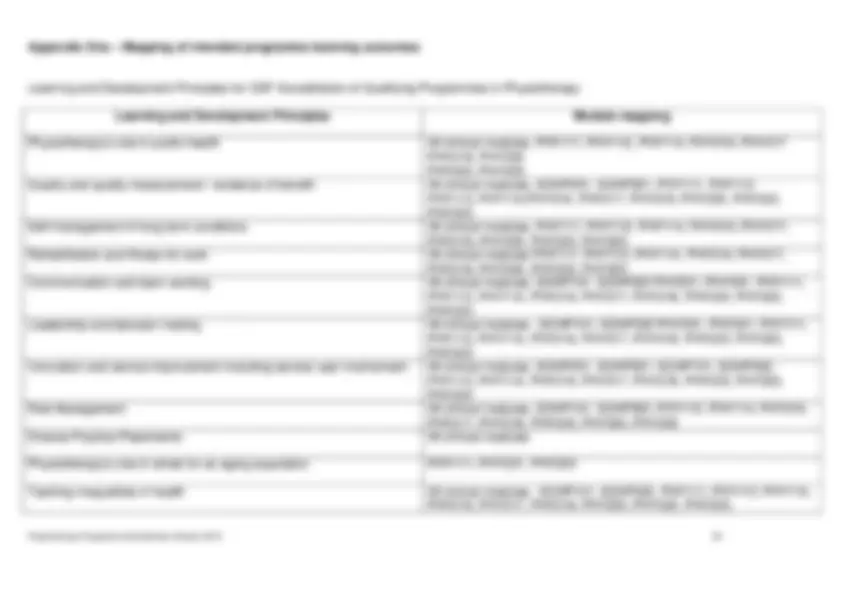
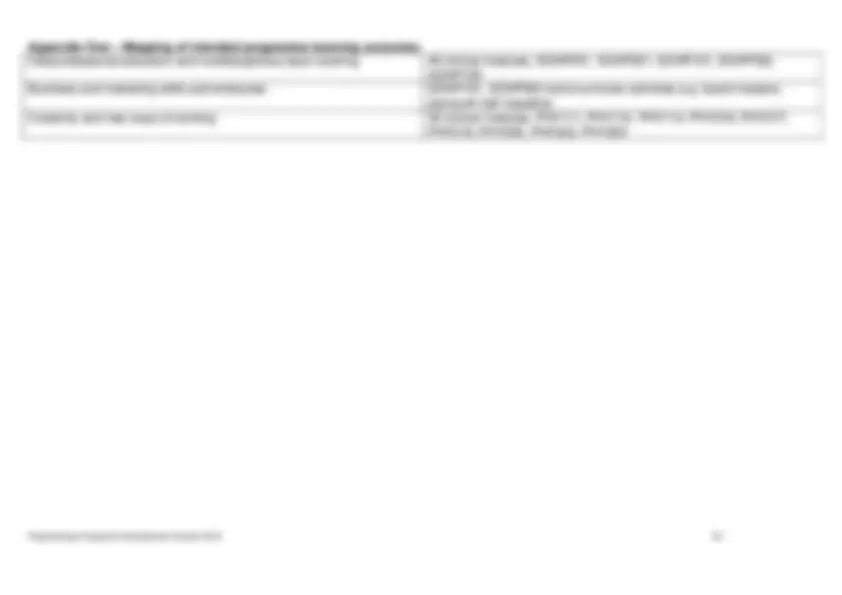
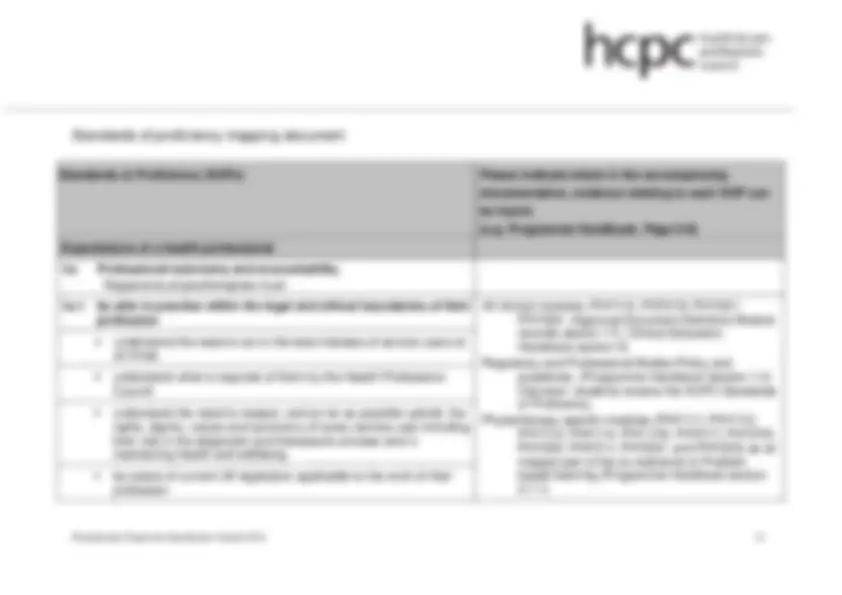
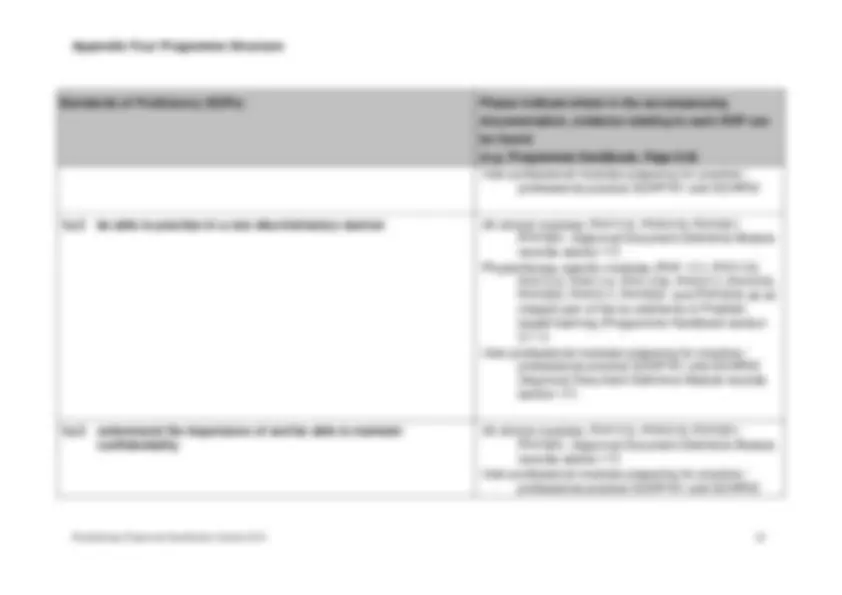
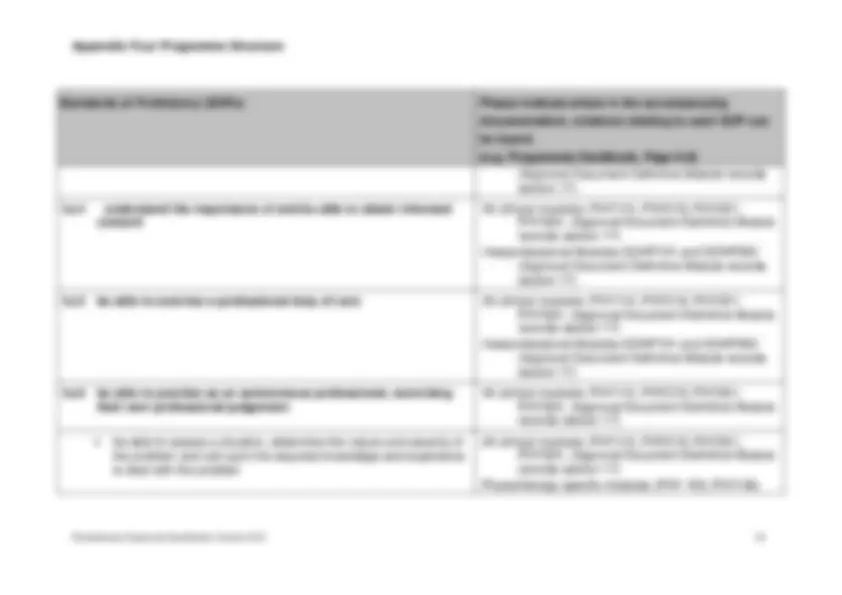
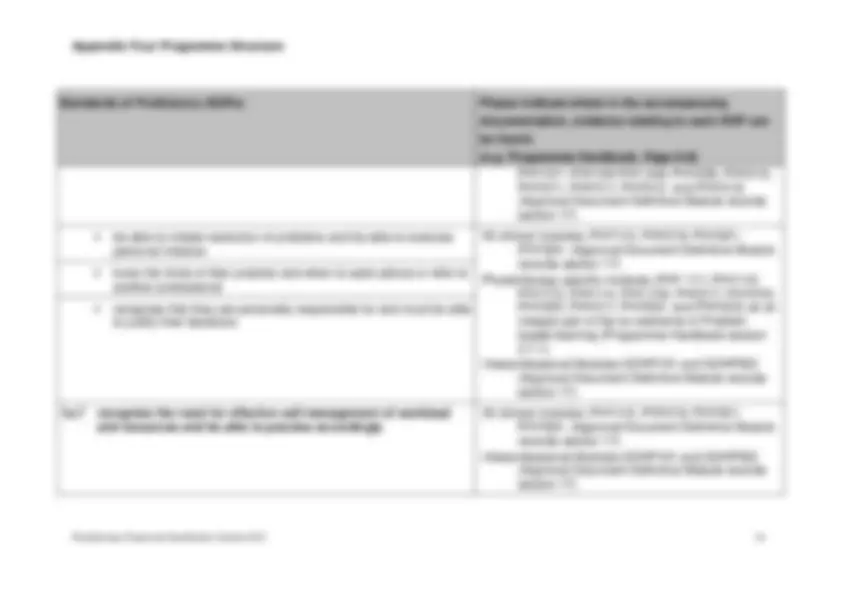
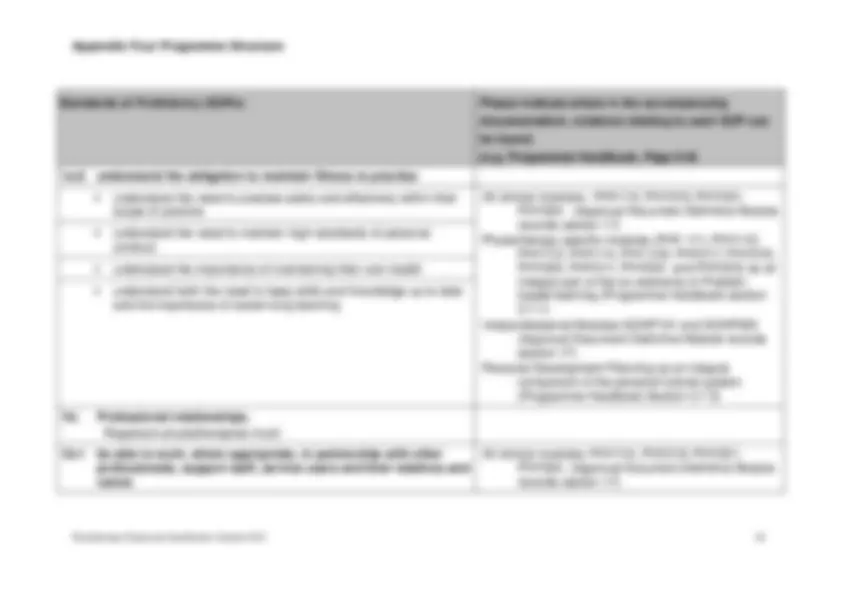
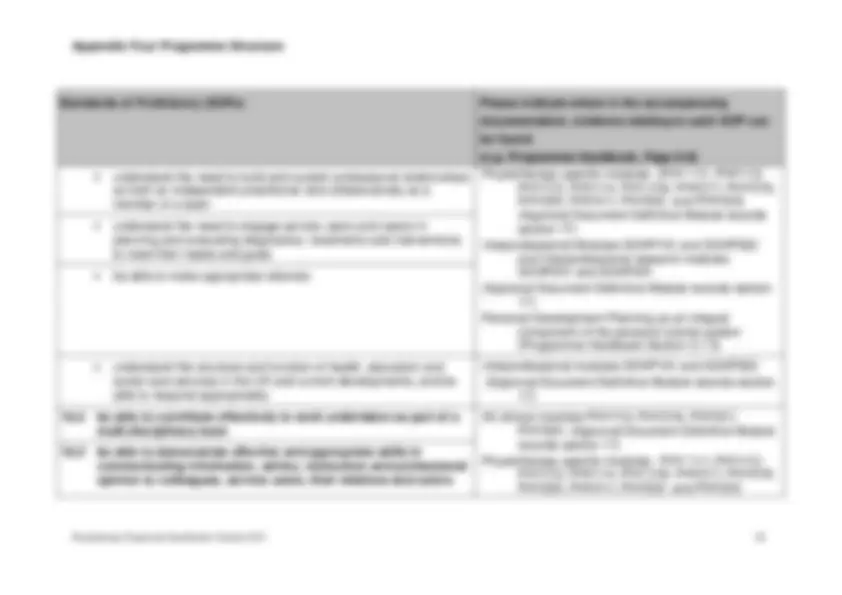
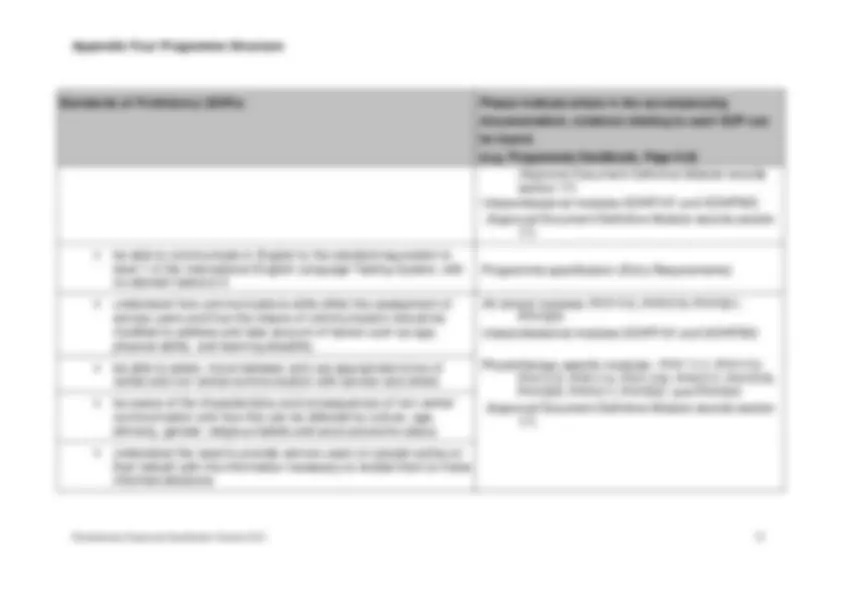
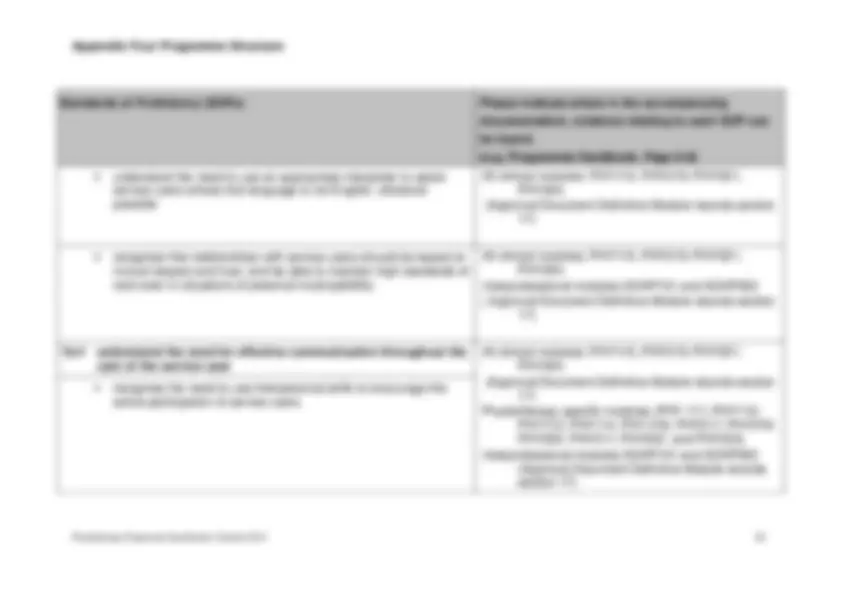
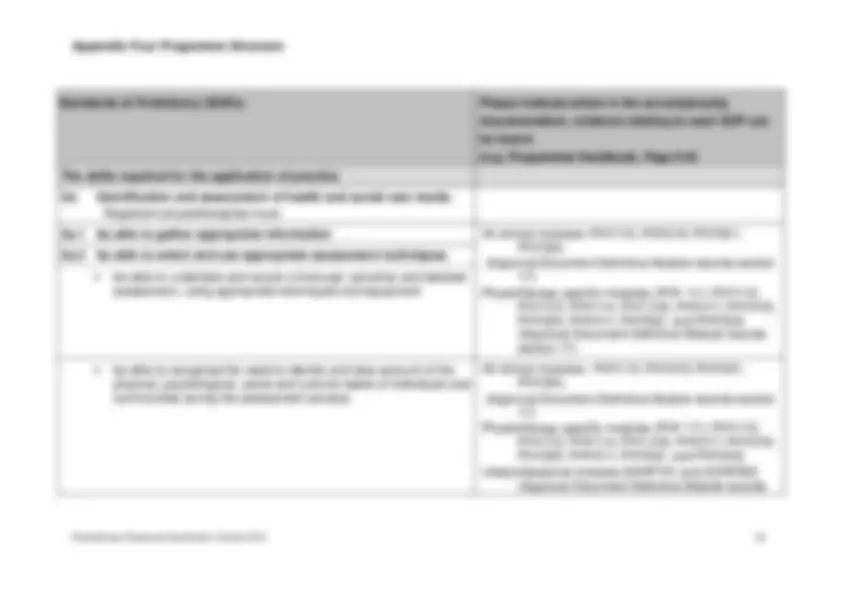
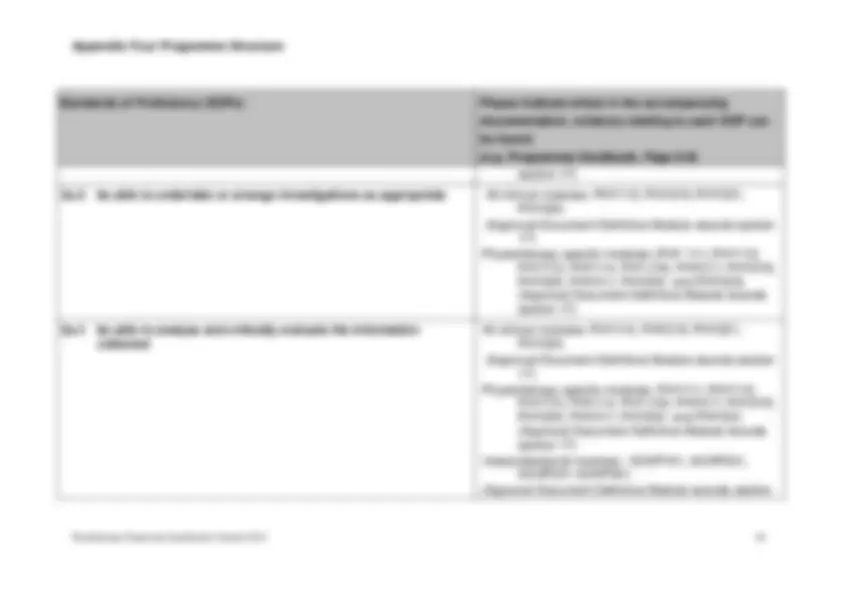
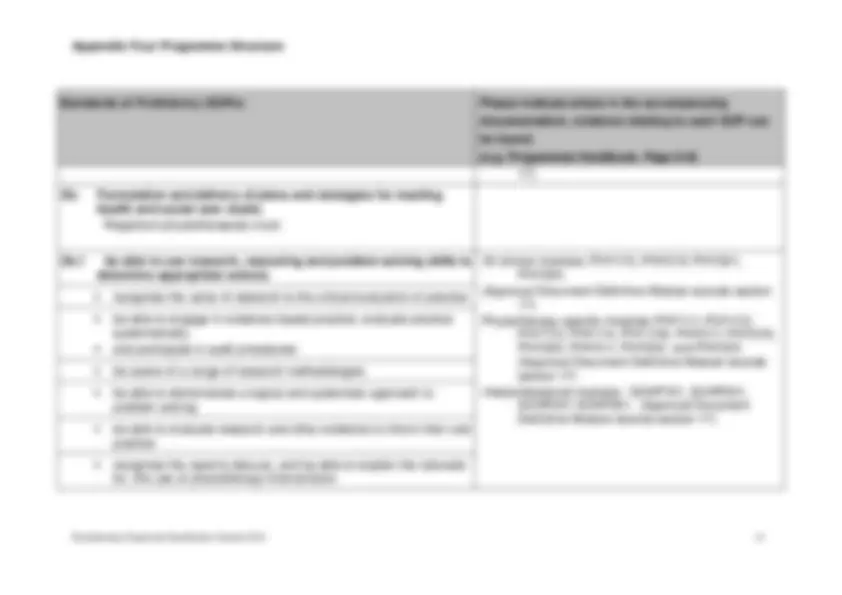
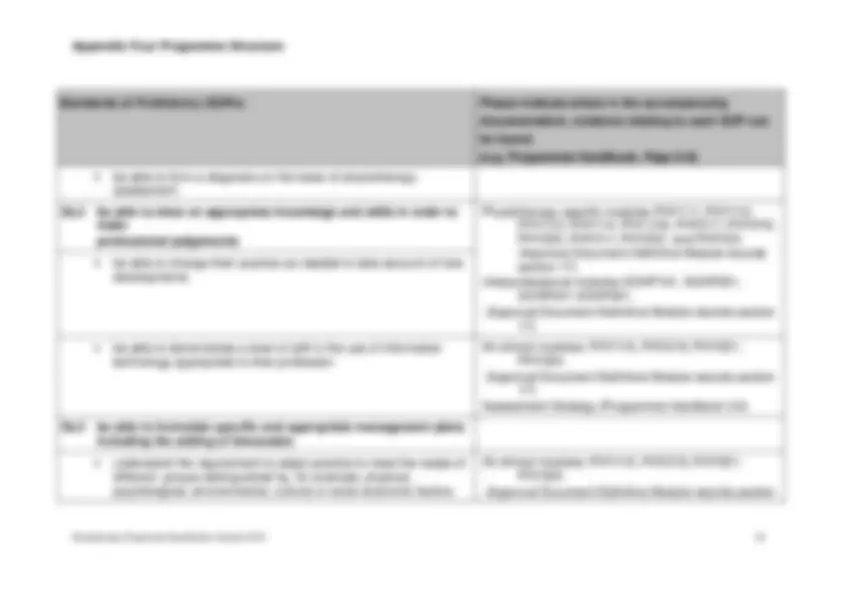
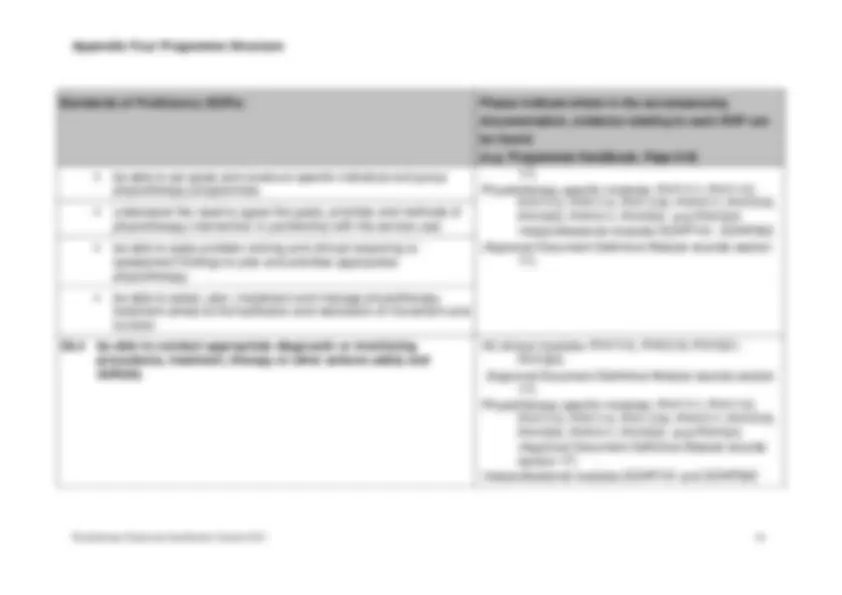
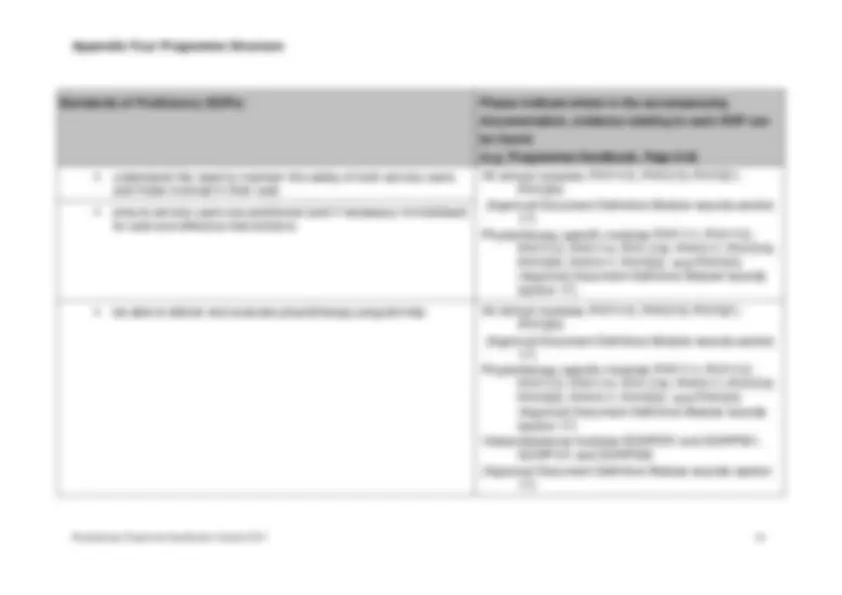
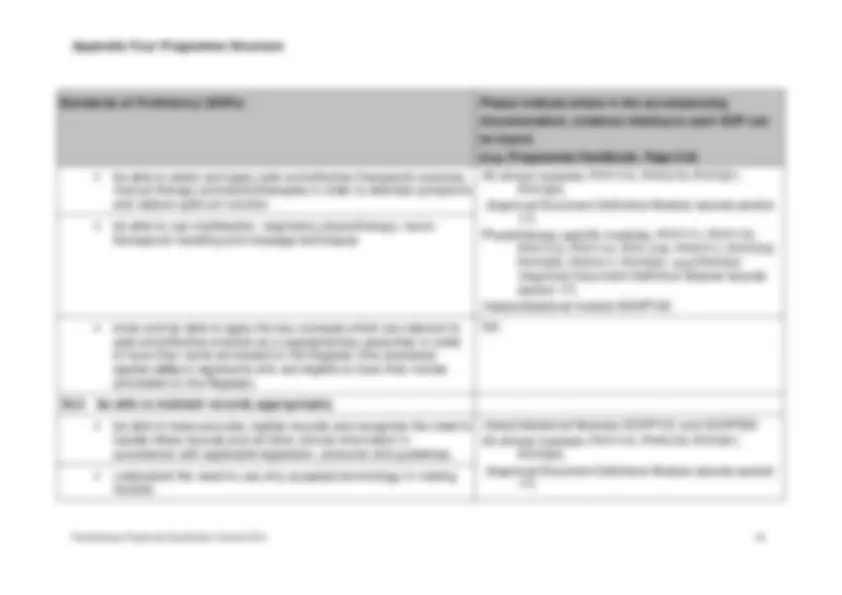
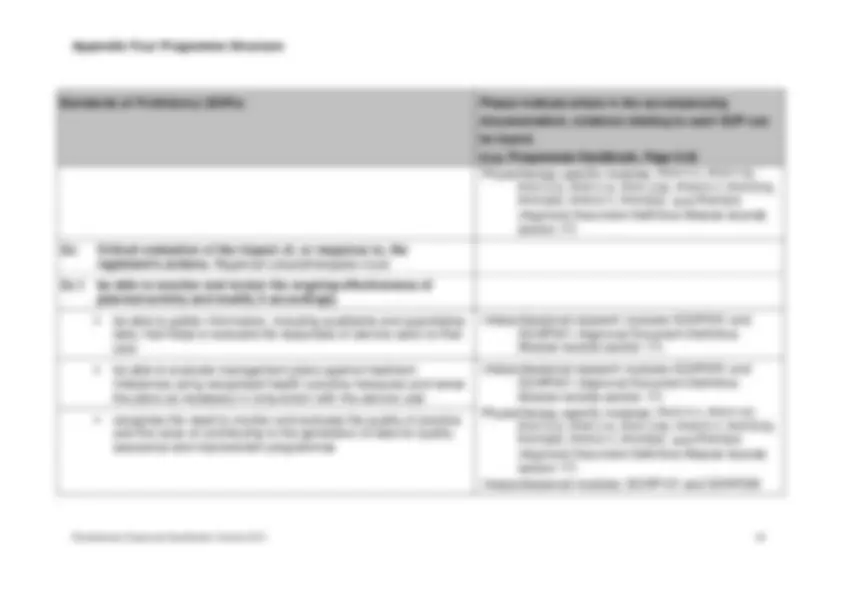
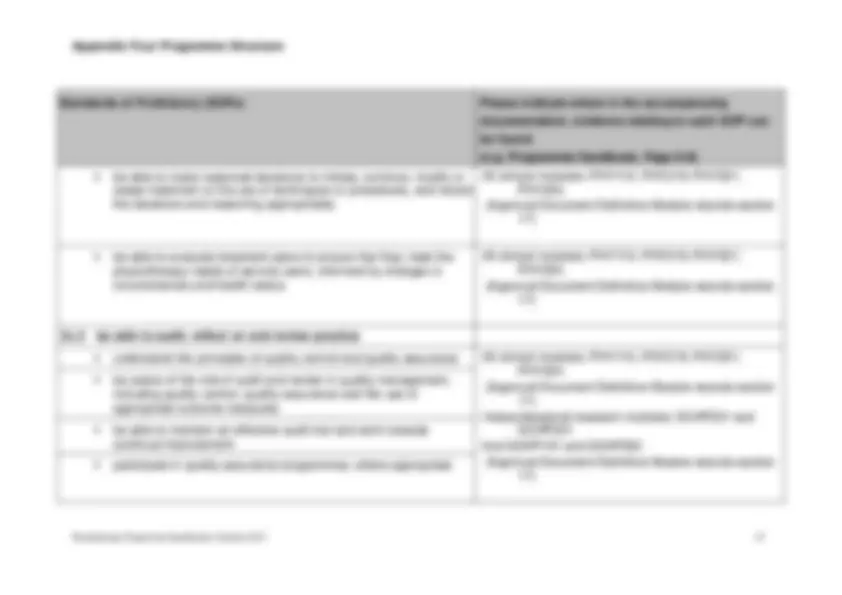
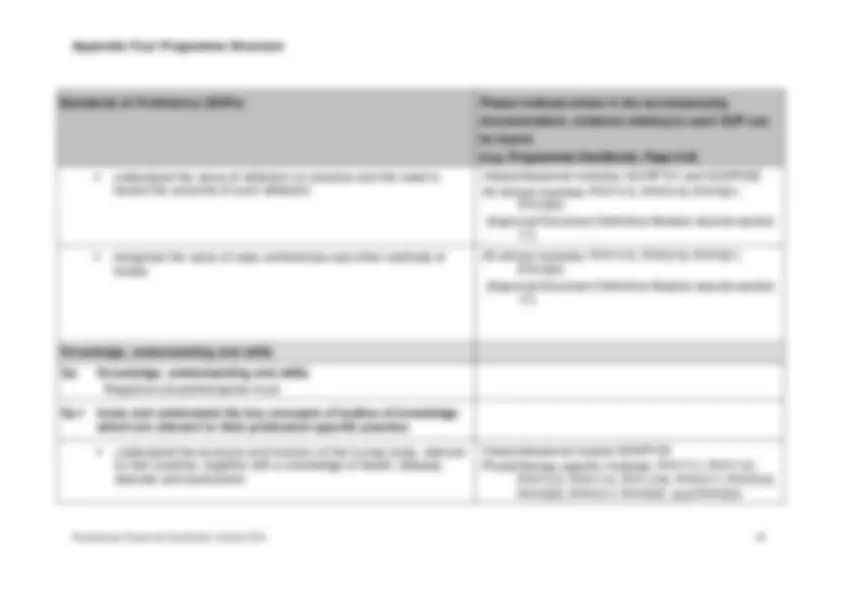
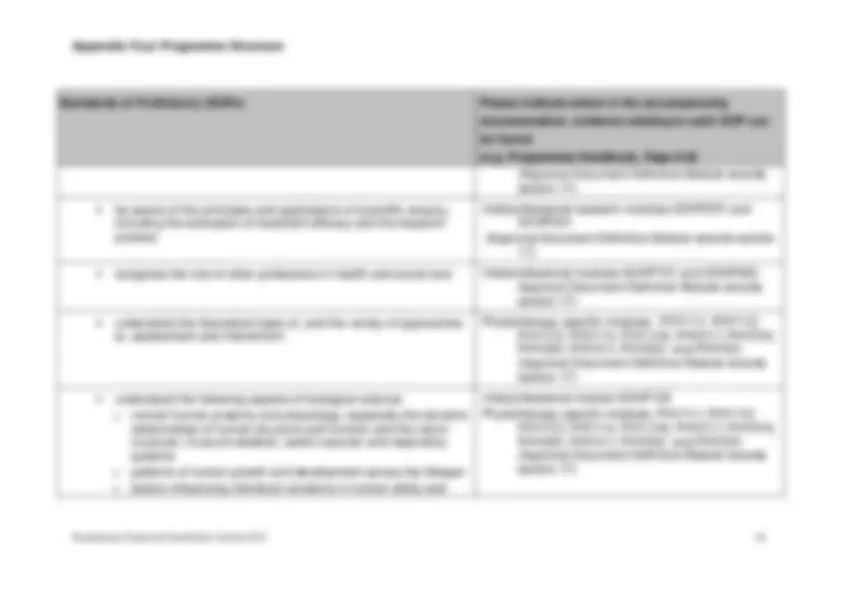
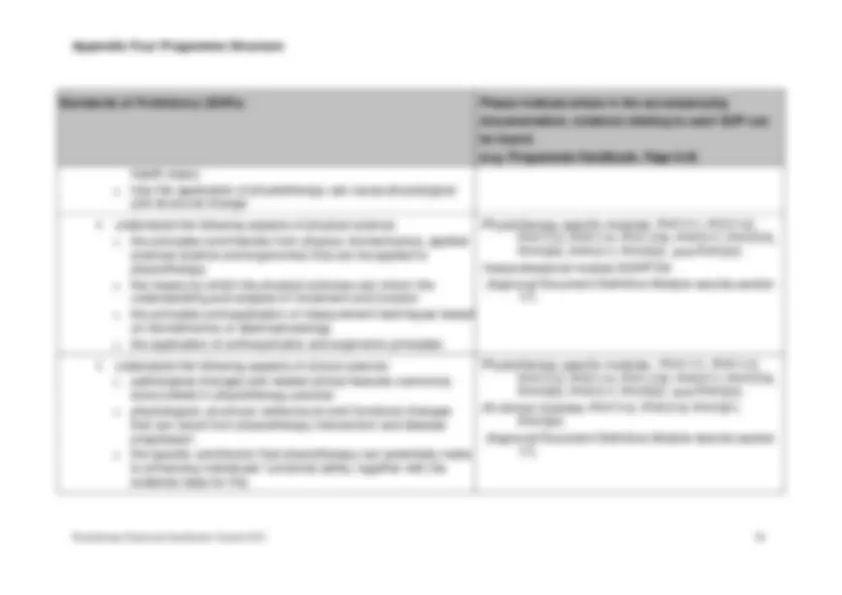
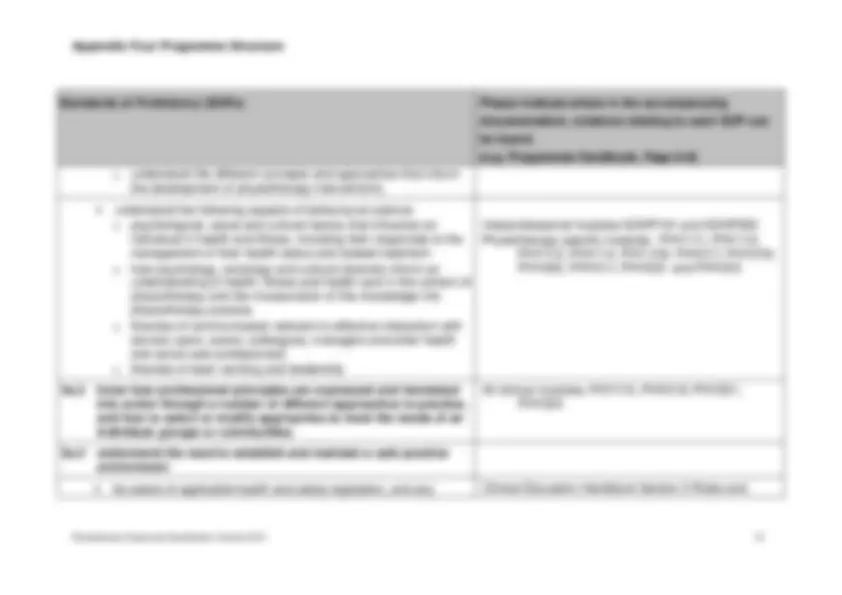
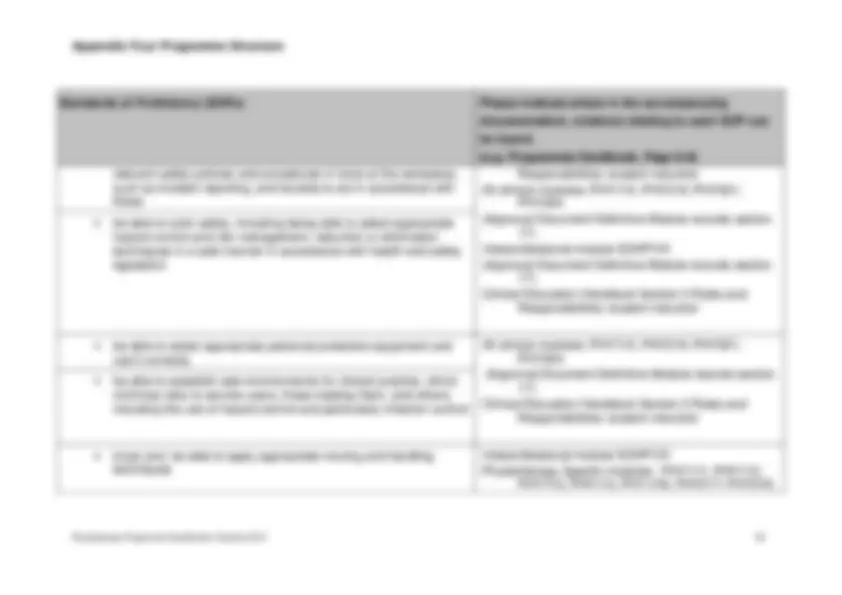
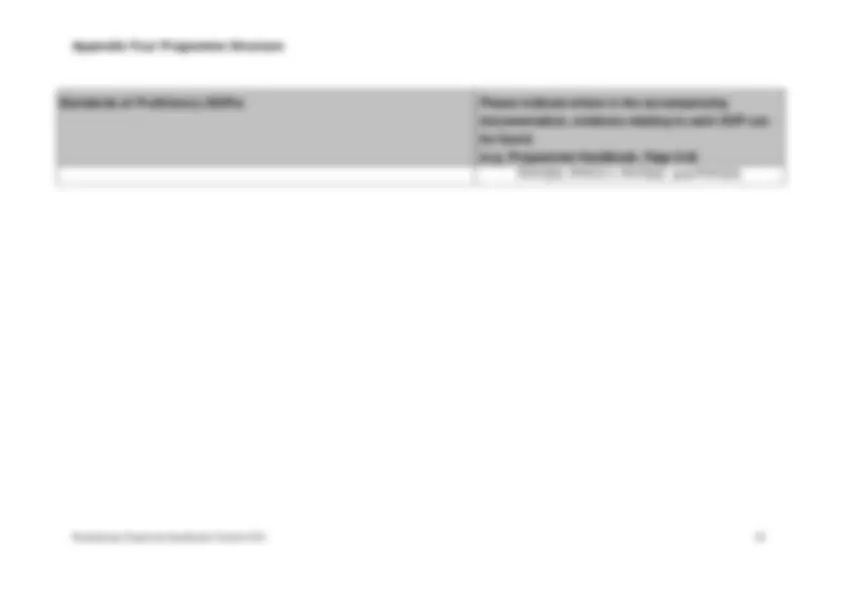
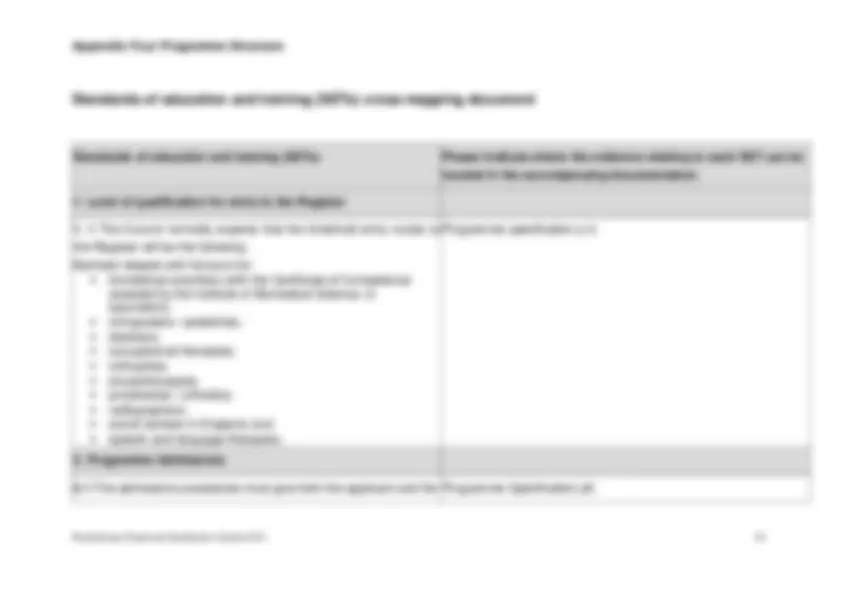
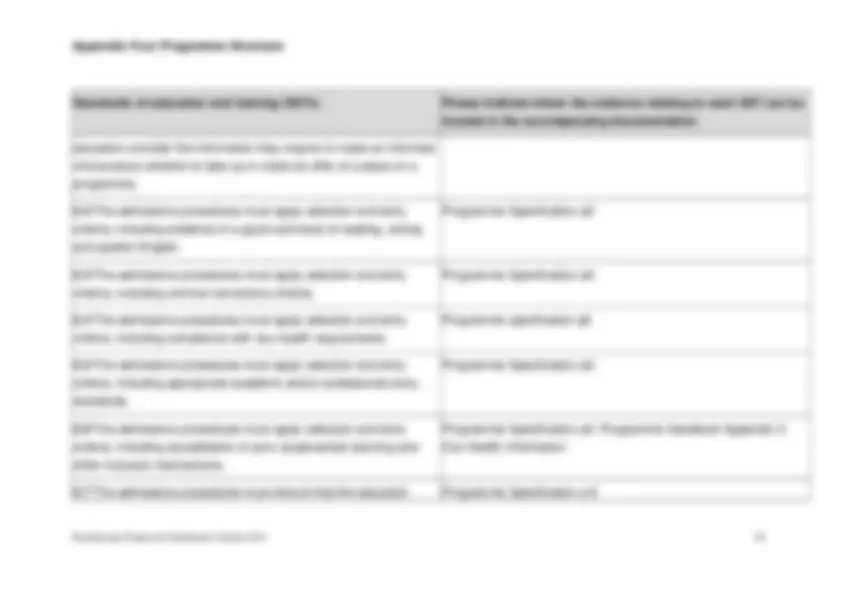
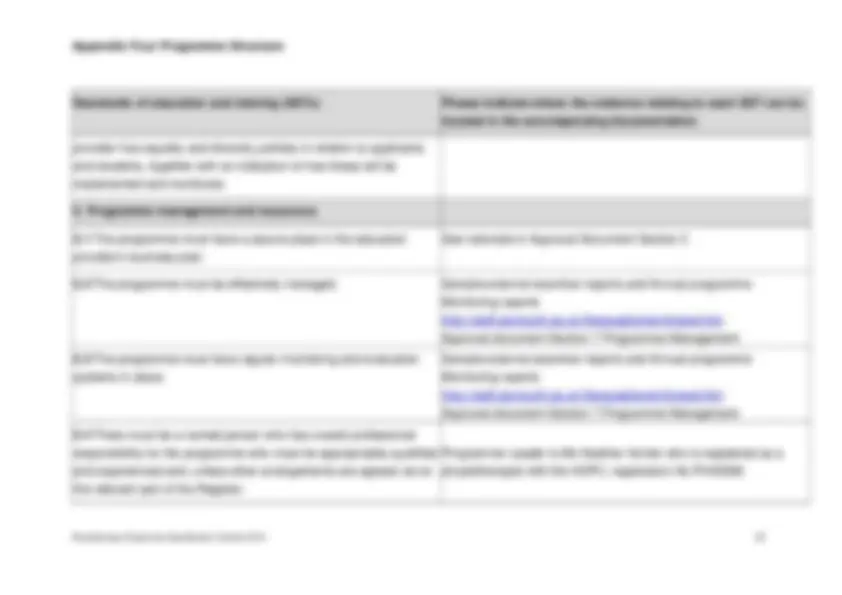
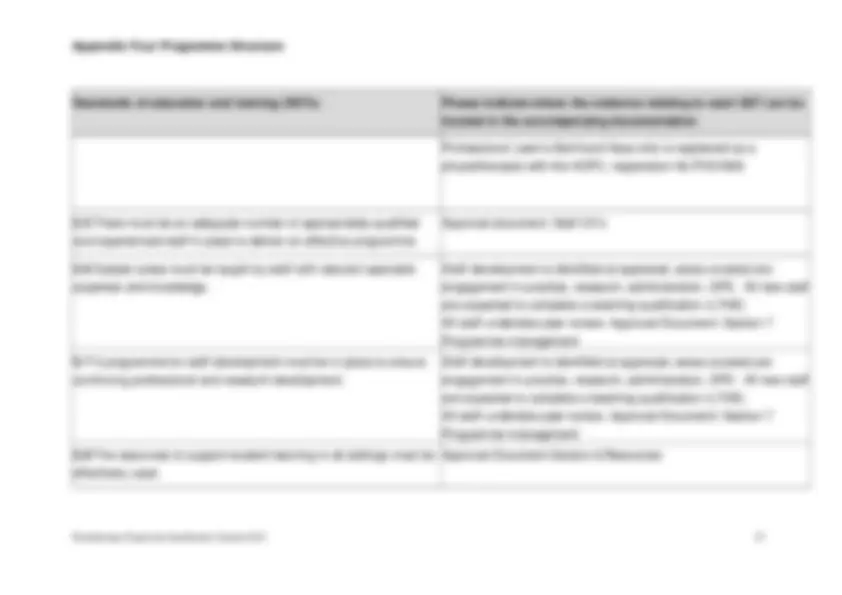
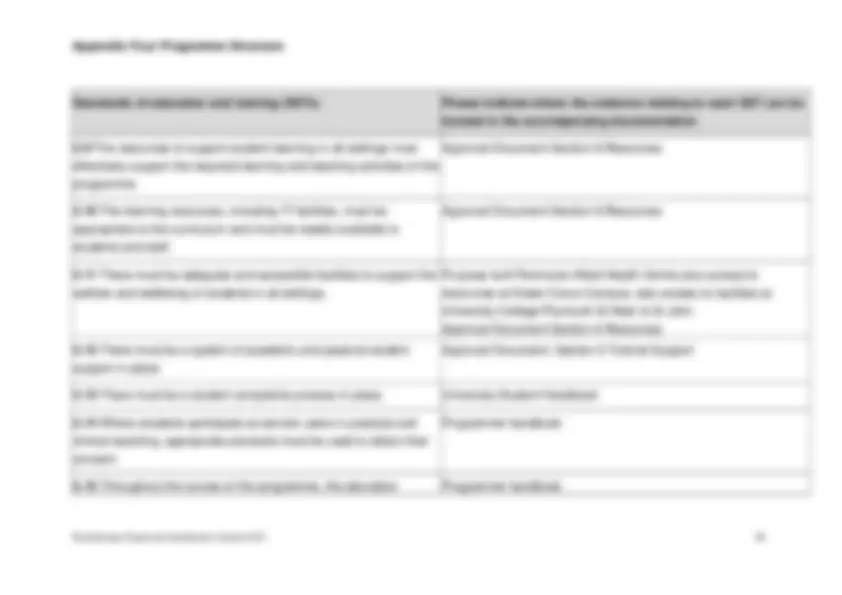
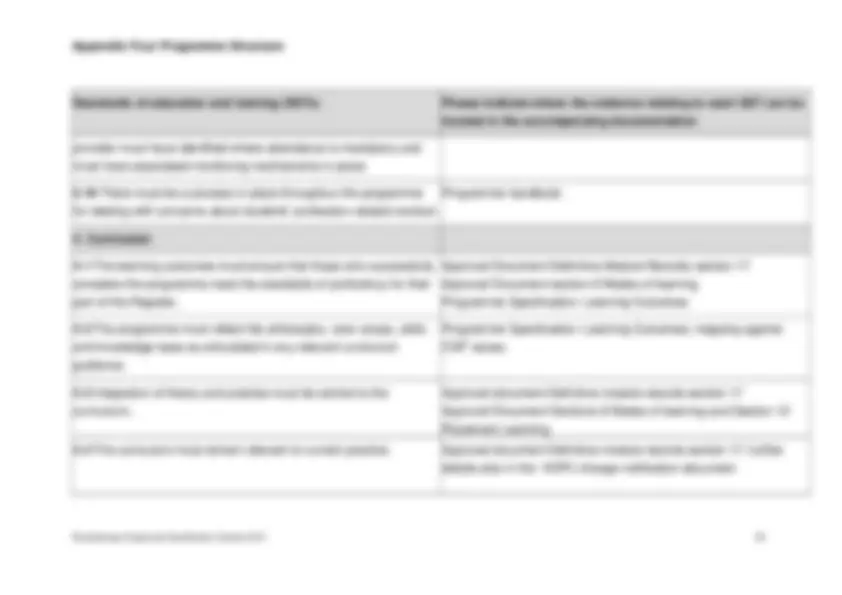
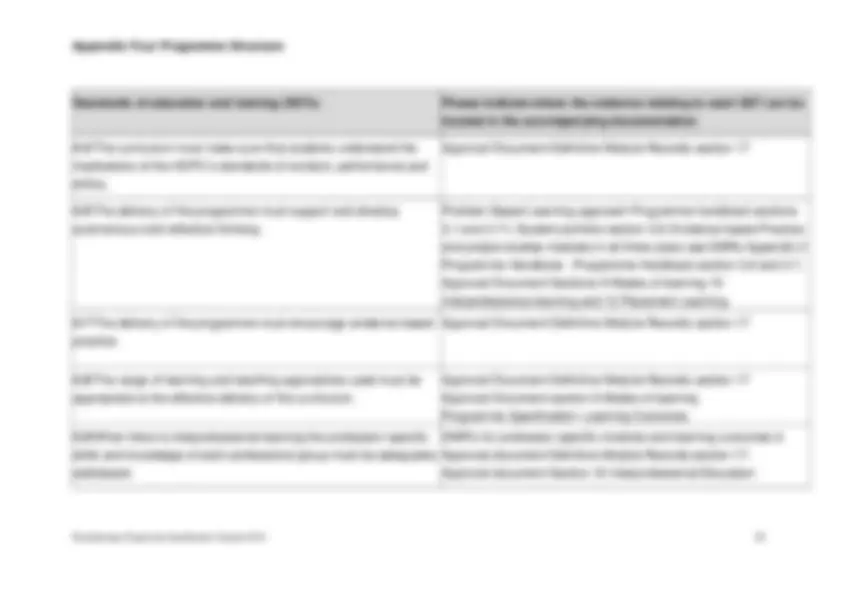
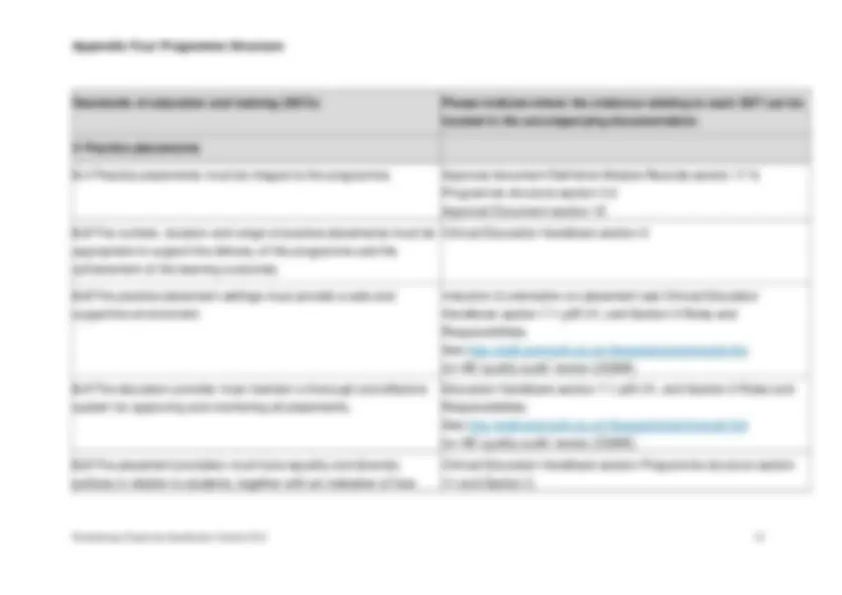
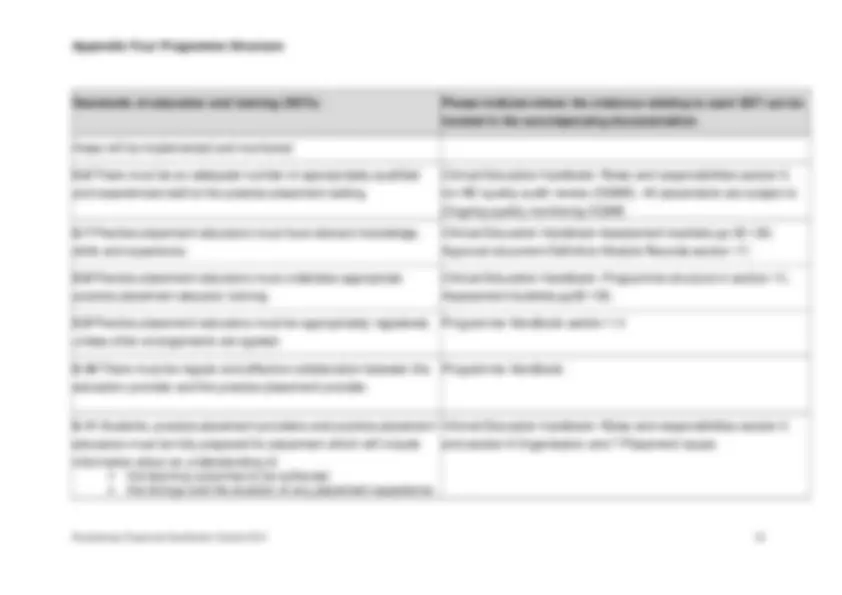
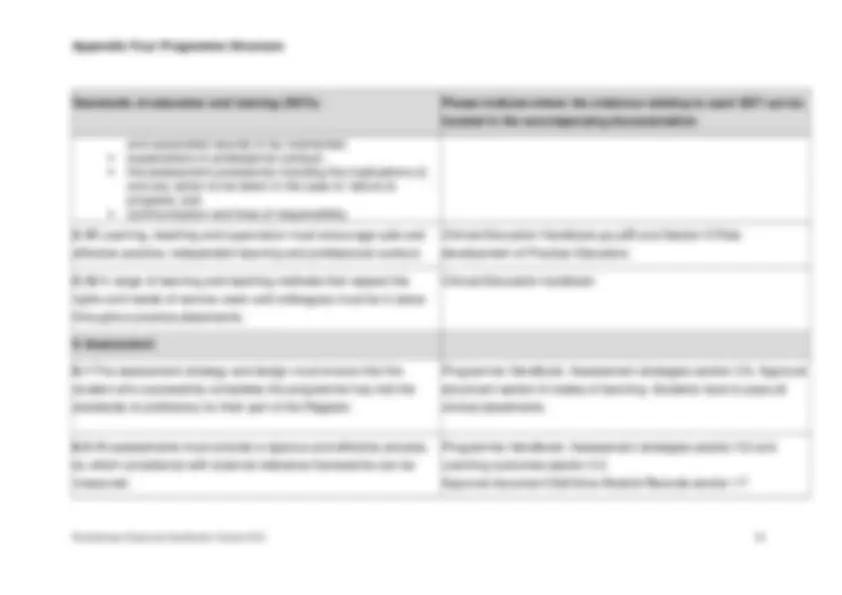
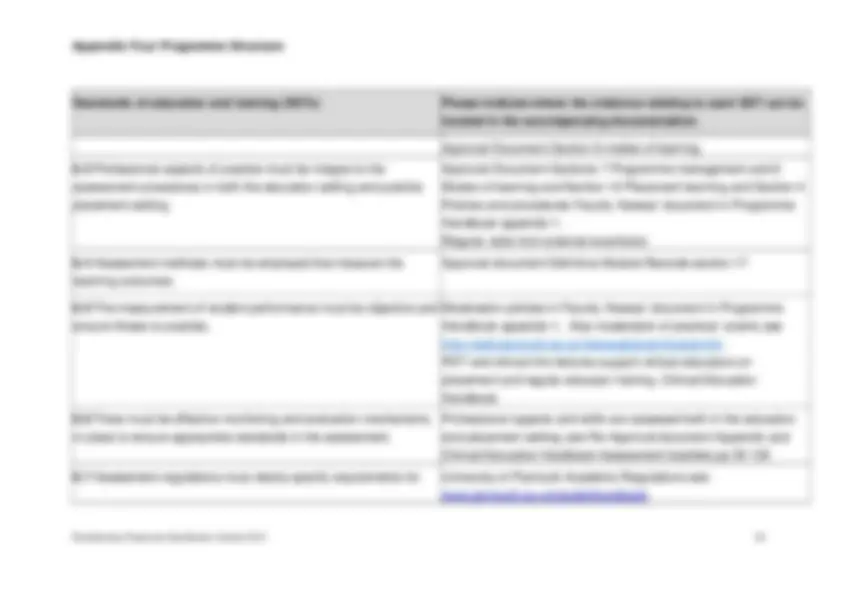
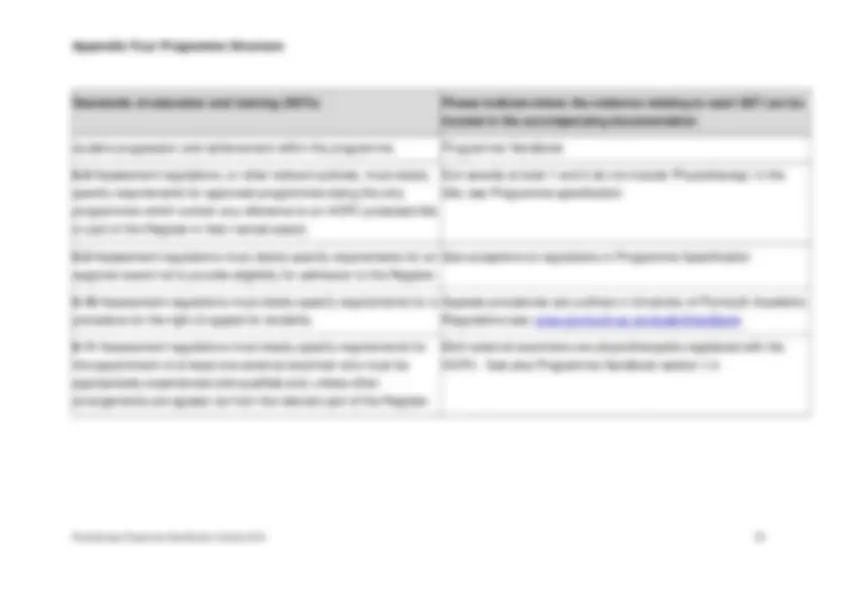
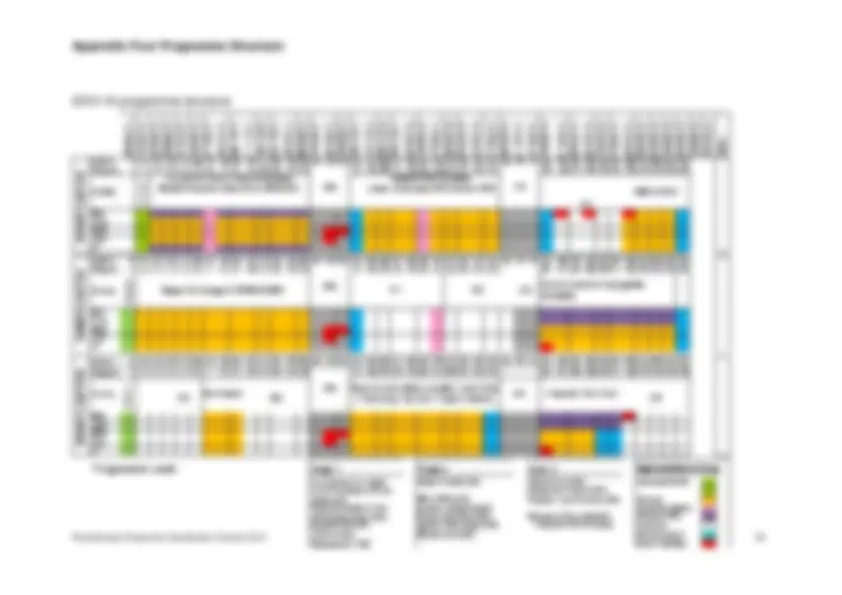



Study with the several resources on Docsity

Earn points by helping other students or get them with a premium plan


Prepare for your exams
Study with the several resources on Docsity

Earn points to download
Earn points by helping other students or get them with a premium plan
Community
Ask the community for help and clear up your study doubts
Discover the best universities in your country according to Docsity users
Free resources
Download our free guides on studying techniques, anxiety management strategies, and thesis advice from Docsity tutors
The standards of proficiency for a Physiotherapy programme, including the specific modules and skills required for effective communication and instruction. Topics covered include verbal and non-verbal communication, cultural awareness, goal setting, and diagnostic procedures. Students must demonstrate proficiency in English and the ability to adapt practice to meet the needs of diverse populations.
Typology: Slides
1 / 67

This page cannot be seen from the preview
Don't miss anything!




























































Date of Approval: January 2013 Date of Implementation: September 2013 Year of First Award: July 2016
practice issues relevant to the case, and to facilitate student development and progression across the three years of the course. Cases include consideration of relevant patient care pathways, as well as practice issues such as the transition of rehabilitation into community and intermediate care settings. In year 3 we have developed a new module to reflect the challenges and opportunities associated with complex case management. The scenarios include triggers which require coverage of the critical care skills needed for the acute management of intensive care patients as well as progression through rehabilitation care pathways; following the patient into the community setting. Clinical cases in this module include spinal cord injury, acquired brain injury, multiple trauma and the concomitant implications for the cardiorespiratory system following the need for mechanical ventilation. This module will facilitate the students’ need to problem solve, to prioritise management, and to work holistically in a range of multi- disciplinary settings. Alongside the clinical aspects the students will learn about caseload management, team-working, delegation and discharge planning, psychosocial issues and long term care needs, for example cognitive function and long term ventilation.
Development of student skills in Information technology and the use of e-learning are embedded within the programme and constructively aligned with the philosophy of problem based learning as students will learn skills in searching for appropriate literature and utilise on line resources to enhance their knowledge. Wikis for each PBL module allow sharing of knowledge when answering their learning objectives. Students are introduced to the online managed learning environment (TULIP) at induction and then throughout the programme as they become familiar in accessing learning materials from TULIP and in a number of occasions will upload their coursework and receive individualised electronic feedback via Scholar (a platform that enables uploading and marking of coursework electronically). Students receive sessions in literature searching in relevant databases at induction with the expectation clearly identified in module guidance of the importance of utilising relevant evidence in all assessments so these skills are refined and enhanced throughout the three years. There is a large array of online resources including clips of clinical skills, patient assessments and patient experiences which contribute to student knowledge and students have access to these throughout the programme. Students have the use of an online portfolio which is embedded into the programme with it utilisation in a number of inter professional and clinical modules, for example, annual SWOT and Personal Development Plan (PDP), reflection on clinical practices and case students and presentations developed in practice. In the final year module, preparation for professional practice the portfolio will be further developed to showcase their knowledge, skills and attributes which will be essential when applying for professional employment.
Interprofessional learning is an important aspect of the course, as all physiotherapists will work within a variety of multiprofessional and interprofessional teams. The programme has a number of shared and interprofessional modules with students from other health programmes, which ensures that students gain an appreciation of the professions that they will be working with in the future. Interprofessional education occurs throughout all years of the programme, and includes core theoretical, developmental, and research
focussed modules. Two of the new modules within the programme – perparation for practice (year 1) and preparation for professional practice (year 3) have aspects of interprofessional and shared learning, allowing students to learn about common professional values and standards of practice. These modules aim to prepare students for clinical and professional practice with research, teamworking, supervisory and mangement skills so that graduates can be effective team leaders. The final year module will equip students with the necessary skills for employment; including a portfolio of knowledge, skills and attributes.
The programme aims to ensure the curriculum and teaching and learning approaches are research-informed and to provide our student with the learning opportunities which will enable them to become lifelong inquirers and researchers. Evidence based practice and the use of a critical, evaluative approach are viewed as key components of the course, and central aspects of the learning and development process. Plymouth University physiotherapy graduates will have well developed practical skills underpinned by the necessary theoretical knowledge and research base. The student learning experience is enhanced by the involvement of staff within different areas of research; both pedagogical and clinical. All of the programme team are active in scholarly activity and research which informs their teaching. Areas of pedagogical research include the use of action research in promoting interprofessional peer learning in clinical practice. The findings of which have resulted in student recommendations being implemented in practice. An exploration of clinical educators’ perception of Physiotherapy students who are studying on a problem based learning (PBL) programme resulted in the development of material for student’s preparation for practice and support for educators. A recent teaching fellowship award will allow members of the team to explore physiotherapy students’ experience of problem based learning in Plymouth and Athens and potential findings from this study will influence the design and delivery of PBL in these programmes. There is also an extensive array of clinical research– a selection of which is detailed here: musculoskeletal research into both the biomechanics and management of back pain has enhanced the design of musculoskeletal modules. Ultrasound studies of nerve dynamics informs teaching of neurodynamic assessment and treatment in musculoskeletal MSK while ultrasound studies of abdominal muscle activity informs teaching of core stability exercises in MSK and neurological conditions, ensuring that research findings are transferred across specialties. Neurological research into the evaluation of risk factors for falls as well as the implementation and evaluation of a falls management programme for people with Multiple Sclerosis MS has influenced the design and delivery of both undergraduate and post graduate modules as wells as provided ideas for student undergraduate research projects. Research into the effects of core stability training on balance and mobility in ambulant MS patients will add to the on-going debate by students with regard to the evidence base surrounding core stability training. Research into the effect of temperature on nerve and muscle function in people with hereditary spastic paraperesis enhances knowledge and understanding of physiological underpinning of the use of thermal agents in physiotherapy management and the potential impact on performance which has implications for both neurological and musculoskeletal patients. In cardio respiratory a number of student research projects are evaluating the
services being delivered in a range of primary and secondary care settings, as well as a growing number of third sector placement opportunities. The programme has developed a diverse placement portfolio including a mixture of acute and community based placements covering the core areas of practice (musculo-skeletal, neurology, respiratory and care of the elderly placements). Specialist placements such as learning disbility, womans health, mental health and paediatrics are also available within the NHS placement portfolio, and third sector placement opportunities include elite sports, Ministry of Defence and charitable establishments. Placement learning takes place across the South West Peninsula, and travel to these placement areas is a feature of the programme for all students. This will have financial and organisational implications for students, and this is made clear at all points in the admissions, induction and placement preparation stages.
Continuing Professional Development (CPD) is a core aspect of practice as a healthcare professional, and the curriculum ensures that students learn about and engage with the process throughout the programme. Students are encouraged to develop a portfolio during their studies to help inform and guide their learning, and ultimately to showcase their knowledge skills and attributes to future employers. This process includes the development and use of skills including reflection, self- appraisal and personal development planning within the year one preparation for practice module. However, students are encouraged to document their experiences on an on-going basis, and to reflect on and in action as a reflective practitioner throughout the course, supported by personal tutor input and supplementary learning opportunities during placement and academic modules.
The programme utilises an array of assessments. Module assessments are designed to be interesting and challenging for the students, but also to equip students with a range of skills relevant to practice. This includes both practical and written exams, essays, presentations, research articles, reflective accounts and case studies and clinical vivas. Students have access to a range of support mechanisms to facilitate their preparation for assessments, including support from module teams, personal tutors and the university learning and development service, as well as on-line support, tutorials and guidance.
GCSE profile: A strong GCSE profile is expected. This is normally at least five passes (at grade C or above) in one sitting and must include English, Maths and Science. Key skills (level 2) standalone qualifications are not acceptable, but may be considered as part of a suitable Access course. A/AS levels: Minimum 340 points from three A2 units, with at least 100 points in biology or human biology. There is a preference for science subjects. Key skills and General Studies are welcome as part of the candidate’s overall profile, but these grades will not count towards the minimum entry. AS levels are not normally accepted – an AS level may only be considered if the applicant is doing a suitable (health/science-related) Extended Project, alongside at least 2 other A2 units, one of which must be biology or human biology.
Other qualifications (examples, not a complete list):
A variety of qualifications and entry routes are considered in the context of the
overall profile. Mature students are welcome to apply.
Applications from recent graduates:
Applications from recent graduates are welcome. They normally must have a
relevant honours degree (achieved within the last five years) with a minimum of
2:2, in a relevant area.
Applications from countries of the European Union and overseas:
A strong academic profile from the home country is required. In addition, English
language qualifications are required, such as:
Key requirements
In addition to the academic qualifications we carefully screen the UCAS application. Therefore, all applicants should ensure that their personal statement and /or reference address the following issues. These will be rated on a points system and the applicants with the highest points will be given priority.
Placement learning: It is a regulatory requirement that physiotherapy students normally complete 1000 hours of supervised practice during the duration of the course. Placements will be in Devon and Cornwall and it is important to note that all students will have to go on placement away from Plymouth. This may have financial implications because of additional travel and accommodation costs. Students on NHS bursaries can get financial help.
If you require further information contact the admissions team on:
Tel: +441752585858 or Email: admissions@plymouth.ac.uk
Accreditation of Prior Certified Learning APEL Credit for prior learning, whether certified or experiential, may count towards the requirements of a named award up to the following maxima:
Certificate of Higher Education 60 credits Diploma of Higher Education 160 credits Diploma in Professional Studies 160 credits Ordinary Degree 220 credits Honours Degree 240 credits
It is important to note that these maxima can only be applied in very specific and rare circumstances. The APEL panel will carefully consider the type of prior learning as well as the manner in which this learning has been achieved. In particular, the panel will have to consider the PBL nature of this physiotherapy programme and whether an applicant who has not been exposed to this approach to learning would be able to enter the programme with advanced standing.
In all cases the learning for which credit is awarded must constitute a coherent programme of study when considered with the credits gained for study within the University. Accreditation of prior learning is based on the concept of specific credit (that is that the learning outcomes of the prior learning are directly equivalent to those of the modules from which the student will be exempt as a result).
Clinical placements successfully completed at another university can be considered for APEL into this course but the overall experience of all core clinical areas must be considered. An APEL panel will meet to assess an application for accreditation of prior learning made by a prospective student. This APEL panel will consist of:
Students with special needs/ disabilities If students identify on admission that they have a disability, they will be invited for an introductory meeting with the Admission Tutor or Programme lead. This is to allow the disabled student to familiarise themselves with the building; and to discuss any requirements that may need to be put in place prior to arriving. Students are encouraged to contact the Disability Assist Service DAS to assess their individual needs.
Placement Learning Students will be expected to travel across the whole of the South West region to their practice placements. This will have financial implications for students.
The programme is intended to develop practitioners who are:
Below is a brief overview of the intended learning outcomes of the programme. Detailed mapping of all the learning outcomes can be found in the appendix.
1.Knowledge and understanding
On completion graduates should have developed: appropriate knowledge and skills in order to make professional judgements and to know the limits of their practice and when to seek advice
Teaching and learning methods and strategies: Key note lectures, problem based learning seminars, practical skills classes, clinical placement experience
Assessment strategies: Written examinations, practical examinations and vivas, clinical placements; presentations
2. Cognitive and intellectual skills
On completion graduates should have developed: Ability to make decisions in complex and unpredictable contexts, problem solving skills
Teaching and learning methods and strategies: Problem based learning seminars
Assessment strategies: Practical examinations and vivas to test clinical reasoning skills
3. Key and transferable skills
On completion graduates should have developed: The ability to use IT and information management systems; Ability to communicate effectively to a range of audiences; Problem- solving skills; Ability to initiate and carry out projects.
Teaching and learning methods and strategies: Clinical education placements, research projects, practical workshops and skills classes
Assessment strategies: Placement assessments, research project, practical examination, viva and presentations
4.Employment related skills Teaching and learning methods
On completion graduates should have developed: the ability to identify personal and professional development needs for CPD and lifelong learning.
and strategies: Career development sessions, personal tutoring; personal reflection
Assessment strategies: Personal and professional development portfolio
5. Practical skills
On completion graduates should have developed: The ability to practice within the legal and ethical boundaries of physiotherapy; Plan and implement appropriate physiotherapy interventions based on an assessment of individual need, the best available evidence, the risks involved to self and others, and personal capacity to execute safely, effectively and efficiently.
Teaching and learning methods and strategies: Practical skills classes and clinical placement learning
Assessment strategies: Practical examinations and placement assessments
The following are exception to normal university regulations which will apply to the BSc (Hons) Physiotherapy:
Chartered Society of Physiotherapy
Students who have not successfully completed the programme and are in
receipt of receipt of an exit award below the BSc (Hons) degree will not be
eligible to apply for registration with the Health and Care Professions Council.
Appendix One – Mapping of intended programme learning outcomes
On successful completion of the programme, the graduate should be able to:
Programme Learning Outcomes
Graduate Attributes Knowledge and skills framework
QAA Benchmark Statements
HCPC Standards of Proficiency for Physiotherapy
Related Modules
Health and well- being: Plan, develop and evaluate programmes to promote health and wellbeing and prevent adverse effects on health and well being Plan deliver and evaluate interventions and / or treatments
All clinical modules, SOHP 101 SOHP103, PHY111, PHY PHY113, PHY114, PHY216, PHY217, PHY218, PHY220, PHY322, PHY323, SOHP 302
Physiotherapy Programme Specification October 2012 20